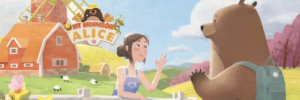With the digitalization of the music industry, the number of artists continues to grow and hundreds of new songs get released by the day. According to a report published last February by Spotify, a new track was uploaded to the streaming platform every second. However, despite the rise in competition, many budding artists still think it’s enough to put their music out there and fans will follow.
There’s no point in sugarcoating this: it takes the right mix of hard work, relevant marketing, and perfect timing to cut through the noise. Knowing how to get funding, build your fan base, and use new tech such as NFTs to your benefit will help you move forward in your music career.
Exploring Funding Options
First, you will need money to fund your expenses: from music production to buying new instruments or cashing up for your first tour. Thanks to new tech platforms and a rapidly shifting industry model, today’s artists have many funding options to choose from.
- Getting signed to a major label is the dream of many young performers. To have a chance at it today, you’ll need to record a quality demo, make some connections in the music space, and, preferably, gather a solid fan base. Besides that, taking this route often means signing away a big chunk of your royalties.
- Applying for a funding or arts grant might be a good choice for independent artists. Research “music grants” in your area for the full list of options and requirements, and make sure you follow the latter: there’s a lot of competition out there.
- Traditional crowdfunding is one of the most democratic models for new or up-and-coming artists seeking funding. Here you’ll have to come up with an incentive for the backers, such as memorabilia, meet-and-greets, and other in-person engagements, which come with additional costs and often require a heavy time investment.
- The difference with equity crowdfunding is that your success is the reward. With Corite, for one, your funders will get a share of the revenues generated by your music for a limited time period. In their turn, They, in turn, become your producers, and your marketing team, really invested in seeing you flourish.
Finding Your Crowd
Building a fan base is the most important piece of the puzzle for creating a sustainable career in music. It’s crucial to build a strong brand around your artistry to attract an audience. My advice here is ‘Find your thing and build from there.
Start by identifying three important value words that represent how you want to be perceived – and use them as a guideline in your communication, whether it’s politics, social issues, or visual identity. As an A&R specialist, I tend to be drawn to artists whose posts I can immediately recognize without even seeing the account’s name.
There are a few ways of promoting yourself organically. First, there are no limitations today in how far and wide your reach can be through your personal social media account. A song on TikTok can quickly go viral and, within weeks or days, every label on the planet could have an offer to you. Of course, that’s a long shot, as social media platforms are heavily crowded, but with digitalization in marketing, the opportunity is there for everyone with patience and talent.
Another one is teaming up with other artists, producers, and songwriters. Magic happens when you least expect it, whether in the studio or on that shared Google docs with lyrics. Many players in the industry tend to see each other as competitors, not players of the same team, which is a shame: an average music lover has lots of different artists and albums on their playlist. Collaboration is one of the best strategies, as it allows the song to reach the combined following of each of the artists. Cross-country collaborations are most effective, as they help your music reach new territories and editorial teams.
Leveraging Trendy Tech
If you are not following and embracing the latest tech trends, you’re most likely missing out. NFTs are the most recent example: just a year ago, hardly anyone knew about the technology, but today non-fungible tokens are trending across the music industry. And there’s more to it than hype: this tech has a lot to offer in terms of opportunity, both to established and emerging musicians.
In a nutshell, an NFT is a digital proof of ownership, with every action performed on it saved forever on the blockchain. A non-fungible token can serve as a programmable, flexible digital contract – for example, every time an NFT is resold, you may automatically receive a set percentage of royalties if that’s included in the smart contract.
NFTs can serve as an additional revenue stream, a tool to attract a wider audience, and a way to create brand new experiences for your fans: e.g. introducing digital art and videos to accompany your music or offering special perks for your fans.
Like with any new tech, there’s a learning curve, but there are many articles on NFTs out there, and if you decide to join an NFT music platform, it will help you handle the technical side of minting your first token. My advice is, don’t be afraid to experiment, reach out and learn, and use new tech to your advantage.
by Emelie Olsson, director of artist relations at Corite
Author
-

The views and opinions expressed in this guest post are solely those of the author, and do not necessarily reflect the official policy or position of NFT News Today.




